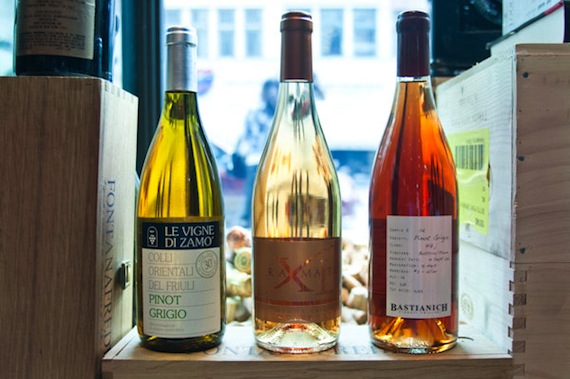The next time you’re browsing the wine menu look out for the fourth (and often forgotten) wine that is making a serious name for itself. If you haven’t heard of orange wine, we first noticed it popping up a couple years ago and it’s developed a large following in the wine community for its distinctive flavor profile.
London is well known for being one of the most pioneering and creative cities in the drinking world and orange wine has been making quite a name for itself. Restaurants and bars have jumped at the opportunity to have a unique option on their wine menus and customers are eager to give the amber option a try. At Soho’s Ducksoup restaurant, orange wine has developed a large following. Co-founder Clare Lattin says that new purchasers of orange wine are coming, “in on recommendation from friends, it’s a good talking point.” Friends make the best recommendations from our experience. Marks & Spencer, a major London retailer, recently sold out a year’s stock in just three weeks. Londoners can’t drink this stuff fast enough.
Orange wine is definitely for the more adventurous wino. Rather than separating the seeds and skins, orange wines are aged like a red wine with white grapes. This process creates a strong range of flavors and added tannins that you don’t find in ordinary white wines. Critics of the amber wine claim that they’re more notorious for their color distinction, rather than the quality of taste.
Orange wine lovers are fans of the vino because it brings such a unique flavor profile and breaks them out of the same old wine routine. Orange wines can also be great for transitioning after a glass of red wine where a white can often be overpowered.
Have you tried a glass of orange wine recently? Should we officially embrace orange wine into our regular repertoire?


